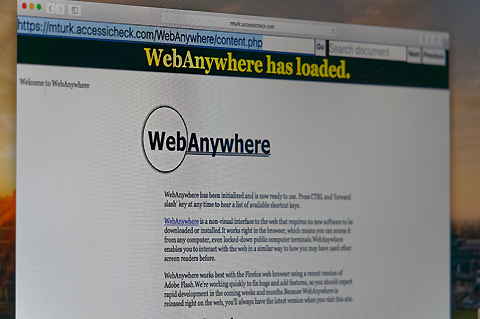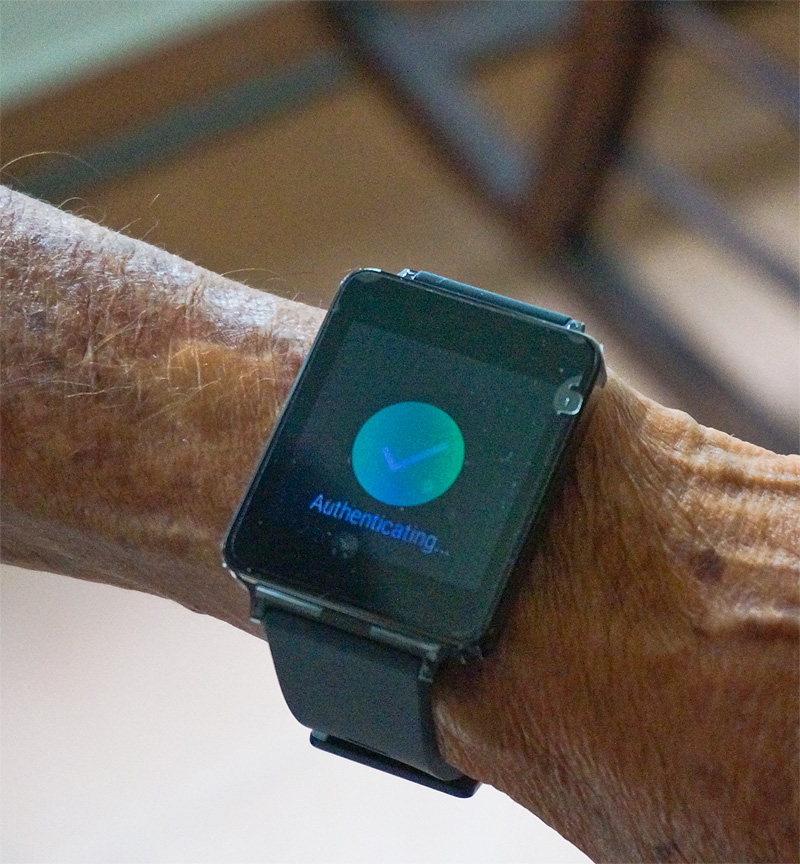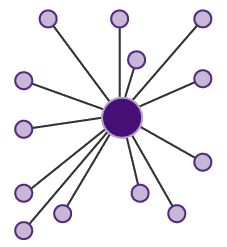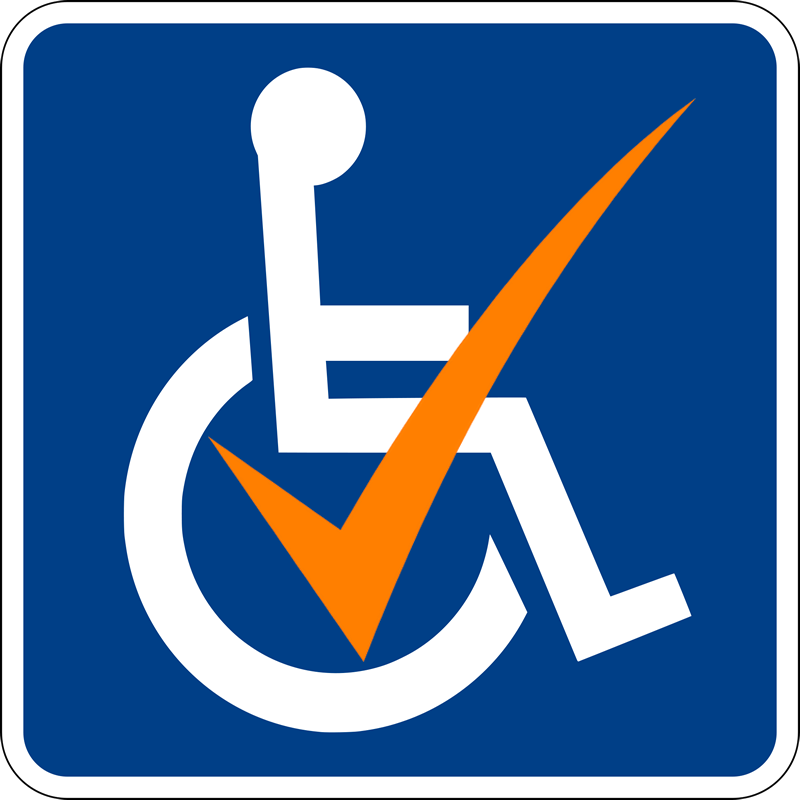Research Projects
Two research themes are crafted to compliment each other in Alex's attempt to provide rounded solutions for challenges faced by the World Wide Web users. These research themes are Mobile Device Interfaces and Web Interfaces. Below are more information about the projects in these themes.
Mobile Device Interfaces (MEDIC)
An essential pillar to Alex's research agenda examines how human behaves when interacting with the digital information, especially the World Wide Web and smart systems. The projects below investigate and address challenges that users faced when interacting with smart and mobile systems, with an emphasis on elderly and physically challenged users.
- Screenreader for the Future
-

This project approaches the challenges visually impaired users face from the assistive technologies perspectives. A Web-based screen reader - Web Anywhere - is used as a foundation for our research to enable our work to be independent of any proprietary industrial product. The study investigates how dynamic content can be best presented to screen reader users, and the best approaches to assist visually impaired users to interact with interactive content on Web applications.
»Publication(s) from this project- To be updated
- Secure Web Accessibility Using Smart Devices
-

Finding the balance between security and accessible content on the Web is a challenge that often heavy towards the security side. In this project, we look at novel approaches using wearables and smart mobile devices to improve the accessibility of secure Web pages from financial institutions, medical institutions and government Websites without compromising on security.
As a first attempt, we suggested a novel framework to use wearables when accessing secure information from your mobile devices. We found this framework favourable among older adults. The following video demonstrates how our framework can be applied.
»Publication(s) from this project
- Alex Q. Chen, Weihan Goh. (2015). Two Factor Authentication Made Easy, In Engineering the Web in the Big Data Era, v.9114, pp.449-458, Springer International Publishing
- Widget Identification and Modification for Web 2.0 Access Technologies (WIMWAT)
-

Dynamic content is often employed by Web practitioners to engage users with the content on the Web page. This form of content delivery adds interactivity as well as challenges to the Web community. Dynamic content provides users with more interactivity and developers with more expressive capabilities. However, Assistive Technologies - such as screen readers - are often slow to adapt to the technological advancement, and frequently, dynamic content goes unnoticed. The WIMWAT project investigates the accessibility issues when accessing Web pages with dynamic content to provide rounded solutions.
»Publication(s) from this project- Alex Q. Chen. (2013). Automatic Web Widgets Prediction For Web 2.0 Access Technologies, School of Computer Science, The University of Manchester, PhD Thesis, September 2013, Kilburn Building, Oxford Road, Manchester, M13 9PL, United Kingdom
- Alex Q. Chen, Simon Harper, Darren Lunn, Andrew Brown. (2013). Widget Identification: A High Level Approach to Accessibility, World Wide Web, (1) pp.73--89, Springer, Netherlands
- Simon Harper, Alex Q. Chen. (2012). Web Accessibility Guidelines: A Lesson From The Evolving Web, World Wide Web, (1) pp.61-88, Springer, Netherlands
- Alex Q. Chen. (2010). Widget Identification and Modification for Web 2.0 Access Technologies (WIMWAT), SIGACCESS Access. Comput., (96) pp.11--18, ACM, New York, NY, USA
Web Interfaces (WIFE)
The World Wide Web evolves at a constant pace, and so does the technologies to ensure that content delivered can meet expectations from the developers and designers. Thus, it requires regular monitoring of the health of the Web and its technologies to understand the challenges users face. Projects in this theme is as follows:
- Understanding the impact of WCAG 2.0
-

WCAG 2.0 has been a W3C guideline since December 2008 to provide design and development directions for creating accessible Web content. In this project, we want to know how much of this guideline has been taken up, and why is the Web still broken? Our investigation attempts to identify some of these issues and explore existing solutions to address them.
»Publication(s) from this project- To be updated
- The Evolving Web
-

The Evolving Web project is a long-term investigation of the Web to probe at different intervals in time, since 1999, to identify the technological trends of the Web. This project allows Alex to understand challenges developers, Web practitioners and users face. The study includes technological changes, the management of data structures, Web standards, Web guidelines and the mode of delivering this information.
We commonly notice a lag from the time many standards and recommendations were introduced to the time when developers adopt them. This gap causes a disconnection between the actual user experience, and what the technology stakeholders expected. The project also further investigate the related causes of the identified issues, especially those involving the Web user interface.
»Publication(s) from this project- Simon Harper, Alex Q. Chen. (2012). Web Accessibility Guidelines: A Lesson From The Evolving Web, World Wide Web, (1) pp.61-88, Springer, Netherlands
- Alex Q. Chen. (2008). Web Evolution, School of Computer Science, The University of Manchester, MSc Dissertation, September 2008, Kilburn Building, Oxford Road, Manchester, M13 9PL, United Kingdom
Explore
Research Projects Research Biography Teaching ExperienceCommunity InvolvementRelated Links
WIMWAT Web Egronomics Lab (WEL)Get In Touch
alexqchen(at)acm.org
Singapore Institute of Technology
10 Dover Drive
Singapore 138683